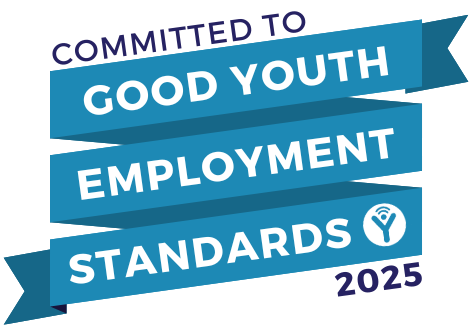It’s fair to say a lot rests on the outcome of a number of highly anticipated skills announcements. As a driver of economic growth, productivity and employment, employers are waiting on key developments in the skills landscape. Below is a round up of what activity has taken place in the first 3 months and what’s to come as we go into Spring 2025.
Level 7 apprenticeships
We await an update on funding for Level 7 apprenticeships and are underlining the importance of Level 7 apprenticeships across the science industries in our discussions with the government.
We have heard some inspiring stories on the impact these programmes are having for both early talent into the industry and upskilling opportunities from employers. We continue to voice our concern to protect funding at this level.
Growth and Skills Levy
We’re waiting for more details of how the Growth and Skills Levy will work. Questions are being asked about enhanced transparency on levy funding and we understand that employers are waiting for news on how it will be utilised in the future.
Goodbye IfATE, hello Skills England
The Institute for Apprenticeships and Technical Education (Transfer of Functions etc) Bill has been working its way through both houses of parliament and was passed on March 31.
There will now be a transition period before a formal transfer from IfATE to Skills England occurs. The leadership team at Skills England have been appointed – key personnel are:
- Chair – Phil Smith CBE
- Vice Chair – Sir David Bell
- Joint CEOs – Tessa Griffiths and Sarah Maclean
- Deputy CEO – Gemma Marsh
We await Skills England’s second report – following on published last September, which set out initial thinking on the skills challenges and priorities for the industrial strategy sectors.
Cogent is supporting colleagues across the government on their policy thinking and the Apprenticeship Strategy Group met officials early in March to discuss Foundation Apprenticeships.
The end of the ESFA
The Education and Skills Funding Agency (ESFA) has now closed and its functions have been transferred to the Department for Education (DfE).
We have seen that DfE will not be releasing a draft version of the Apprenticeship Funding Rules for 25/26; instead opting to work with experts on new developments; with a focus on introducing updates across:
- active learning policy, with adjustments to support more flexible delivery models and maintain learner engagement
- prisoner apprenticeships, clarifying processes and eligibility to expand apprenticeship access for prisoners
- changes to end-point assessment (EPA), implementing modifications following announcements made during National Apprenticeship Week
- eligibility criteria, updating eligibility guidelines to ensure greater clarity and consistency
- English and maths clarifications, providing further guidance on English and maths requirements to support all apprentices
We’ve asked DfE if employers and universities will be consulted as part of the development process, and we await its response.
A new-look Ofsted
In early February, Ofsted launched an anticipatory consultation on the proposed new framework, which will come into effect later this year.
Rachel Roby has written an overview of what we know from the proposed framework for FE and Skills and has provided her initial thoughts here.
We will continue to keep a watching brief over the consultation developments and next version of the framework which we expect in late spring/early summer.
Spring Statement
Please read our summary of the Government’s recent Spring Statement here.
Curriculum and Assessment Review
The DfE has released an interim report outlining what Professor Becky Francis and her team found during the consultation and research phase of the Curriculum and Assessment Review.
Rachel Roby has written an overview of what we know so far, and what is next. Read the overview here.
23/24 Academic Year Achievement Data
Please read our reaction to the Apprenticeship Achievement data here.
Changes to Apprenticeships
During National Apprenticeship Week, a raft of announcements came out, including:
- Functional Skills: for apprentices over the age of 19, functional skills will not be an exit requirement of an apprenticeship, and this became applicable for existing apprentices and future ones (as of February 12). Functional Skills support is still available for those who want to continue their qualifications and wish to enrol in the future.
- Shorter duration: DfE announced that the minimum duration of an apprenticeship would be eight months moving forward and that three trailblazer apprenticeships in key shortage occupations will look to pioneer the new shorter apprenticeship approach, with apprentices in green energy, healthcare and film and TV production set to be able to take on these new courses.
- Foundation Apprenticeships: We await formal details, but early indications are that Foundation Apprenticeships will be based on a pre-Level 2 study to prepare individuals to move onto Level 2 apprenticeship programmes. As announced in the Spring Statement, money is being allocated within the construction sector to design and launch a programme. We also know different sectors are being approached to determine what options are available for Foundation Apprenticeships.
- Changes to End Point Assessment: We understand DfE wants to increase flexibility and simplicity in assessment within apprenticeships and introduce, where appropriate, programme assessments that the training provider can deliver. We are anticipating more news in early April about the priority order of when revisions to existing apprenticeship assessment plans will start.
If you have any questions, want more information or have suggestions for future policy insights, please contact Rachel Roby at [email protected].







